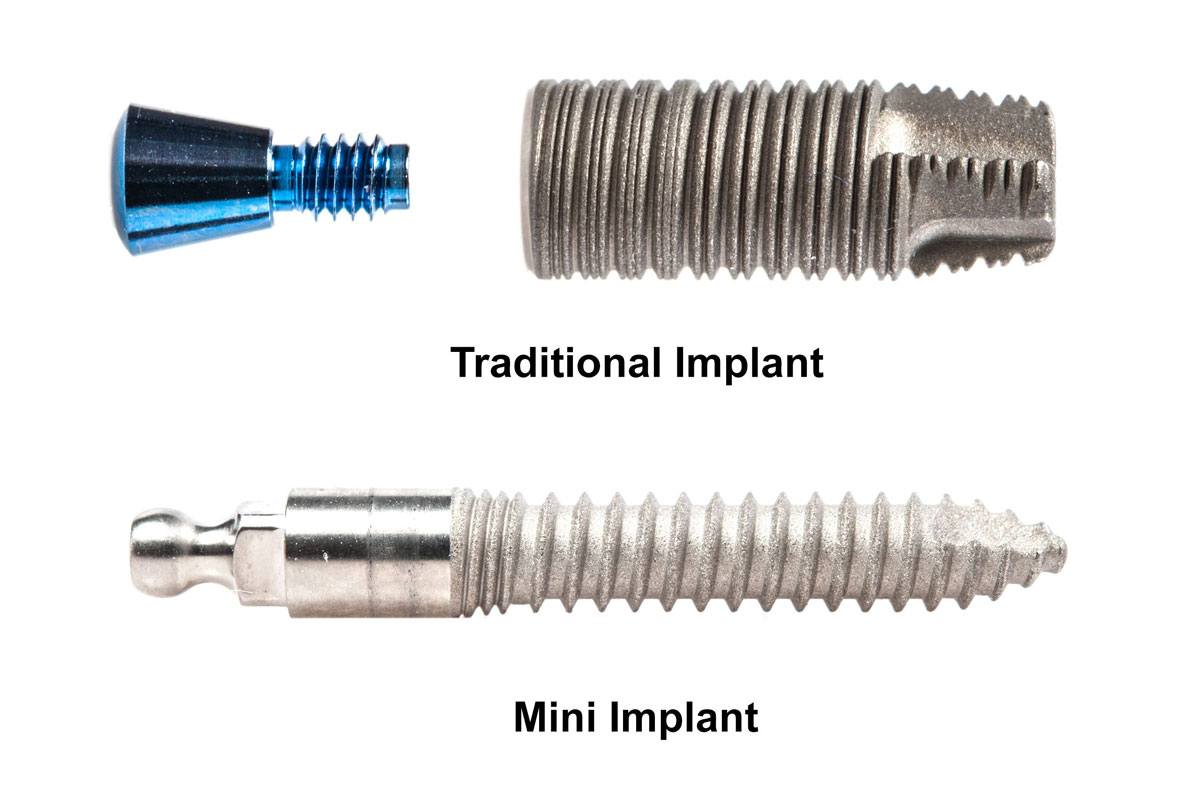Mini Dental Implants: A Modern Solution for Missing Teeth
Tooth loss can affect more than just your smile—it can influence your ability to eat, speak, and feel confident. Mini dental implants offer a quicker, less invasive, and often more affordable alternative to traditional implants, helping patients restore dental function without major surgery. But are they right for you? This guide explores everything you need to know about mini dental implants, from how they work to what to expect.

What Are Mini Dental Implants?
Mini dental implants (MDIs) are a type of dental implant with a smaller diameter—typically less than 3 millimeters—compared to traditional implants. Unlike standard implants, which often require multiple stages and significant bone density, mini implants can usually be placed in one appointment, sometimes even without incisions or stitches.
Key Characteristics of Mini Dental Implants:
| Feature | Mini Dental Implants | Traditional Implants |
|---|---|---|
| Diameter | ~2–3 mm | ~3.5–6 mm |
| Procedure | Minimally invasive | Surgical (often multi-stage) |
| Healing Time | Short (days to weeks) | Longer (months) |
| Cost | Lower | Higher |
| Bone Density Requirement | Less stringent | Often requires bone grafting |
How Do Mini Dental Implants Work?
Mini dental implants consist of a titanium post with a ball-shaped end, which is inserted into the jawbone. A socket with a rubber O-ring holds the artificial tooth or denture in place. Because of their compact design, MDIs can often be placed without the need for bone grafting, making them especially useful for patients with narrow jawbones or insufficient bone mass.
They're frequently used for:
Stabilizing lower dentures
Replacing single or multiple missing teeth
Supporting crowns or bridges in tight spaces
Advantages of Mini Dental Implants
Faster Recovery:
Most patients experience minimal discomfort and return to normal activity within 24–48 hours.
Lower Cost:
Since the procedure is simpler and quicker, the overall cost is usually significantly lower than traditional implants.
Immediate Results:
In many cases, temporary teeth or dentures can be placed the same day.
No Need for Bone Grafts:
Ideal for patients with insufficient jawbone volume.
Stability for Dentures:
Greatly improves the fit and function of loose lower dentures.
Considerations and Potential Drawbacks
While mini implants are convenient, they may not be ideal for everyone. Some key limitations include:
Not for High Bite Forces:
MDIs may not be suitable for back teeth or areas with heavy chewing pressure.
Longevity:
Though many last for years, they may not match the long-term durability of standard implants.
Limited Applications:
Not always appropriate for full-mouth restorations.
Always consult a qualified dental professional to determine whether mini implants are the right choice for your specific dental needs.
Cost of Mini Dental Implants
The cost can vary based on location, provider, and the number of implants needed. On average:
Single Mini Implant: $500–$1,500
Full Lower Denture Stabilized with MDIs: $2,000–$5,000
Compared to traditional implants, which can cost $3,000–$5,000 per tooth, MDIs present a more accessible solution for many patients.
Are Mini Dental Implants Right for You?
You may be a good candidate if you:
Have one or more missing teeth
Wear loose dentures and want more stability
Have insufficient bone for standard implants
Want a less invasive and quicker procedure
A comprehensive dental exam, including 3D imaging, can help assess suitability and plan treatment accurately.
Final Thoughts
Mini dental implants represent a significant advancement in restorative dentistry. For patients seeking a faster, less invasive alternative to traditional implants, they offer real benefits in terms of cost, comfort, and convenience. While not a one-size-fits-all solution, their rising popularity reflects the growing demand for efficient and affordable dental restoration options.
If you're considering tooth replacement options, mini dental implants are worth discussing with your dentist. With proper care and placement, they can offer a stable, functional, and confident smile for years to come.
Related Articles
Dental Implants for Seniors: Restoring Smiles and Quality of Life After 60
Explore the benefits, risks, and cost of dental implants for seniors and how they can restore both function and confidence after tooth loss.
How to Choose the Right Dental Implant Specialist Near You
Discover how to find a trusted dental implant specialist near you and what to expect during the procedure.
One Day Dental Implants: What You Need to Know Before You Book
Discover the benefits, costs, and process of one day dental implants—get a new smile in just 24 hours.
Best Dental Implant Options Near You: What You Need to Know in 2025
Discover how to choose the best dental implants near you—cost, procedure, materials, and expert tips in one comprehensive guide.
A New Smile for Life: Everything You Need to Know About Full Mouth Dental Implants
Discover how full mouth dental implants can transform your smile, improve oral health, and boost confidence with long-term benefits.
Choosing the Right Dental Implants Near Me: A Complete Guide for Confident Smiles
Discover how to choose the best dental implants near you. Compare options, costs, and benefits for a confident, lasting smile.
A Complete Guide to Dental Implants: Costs, Benefits, and What to Expect
Explore dental implants—how they work, what they cost, and whether they’re right for you. Learn everything you need in under 5 minutes.